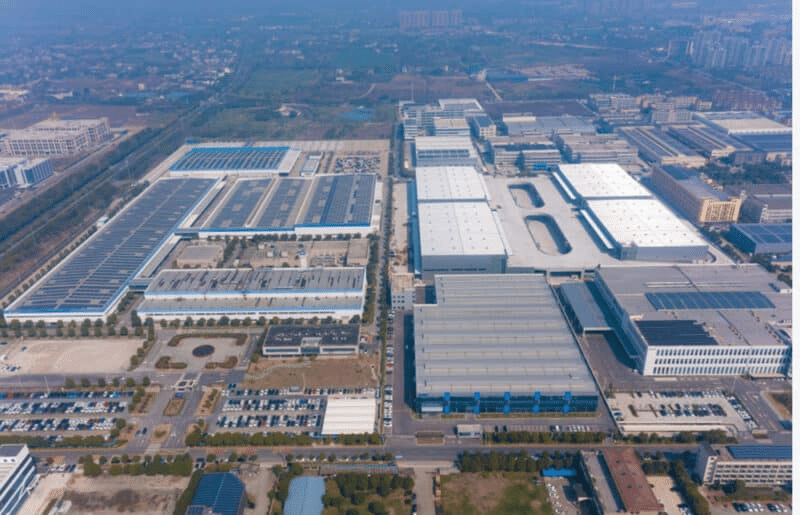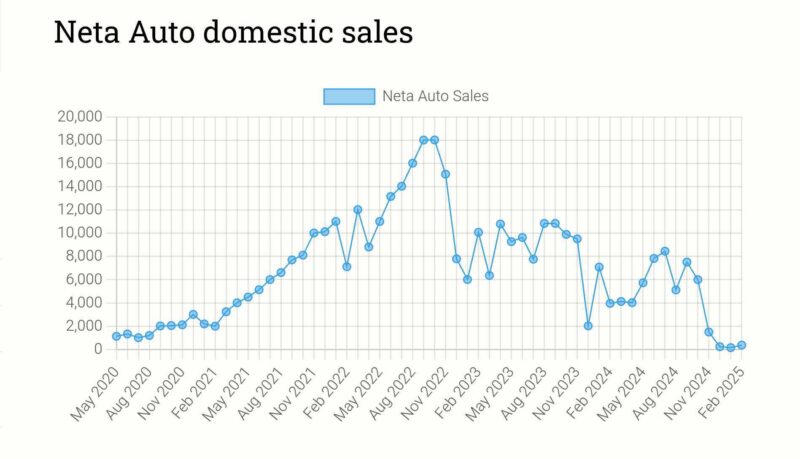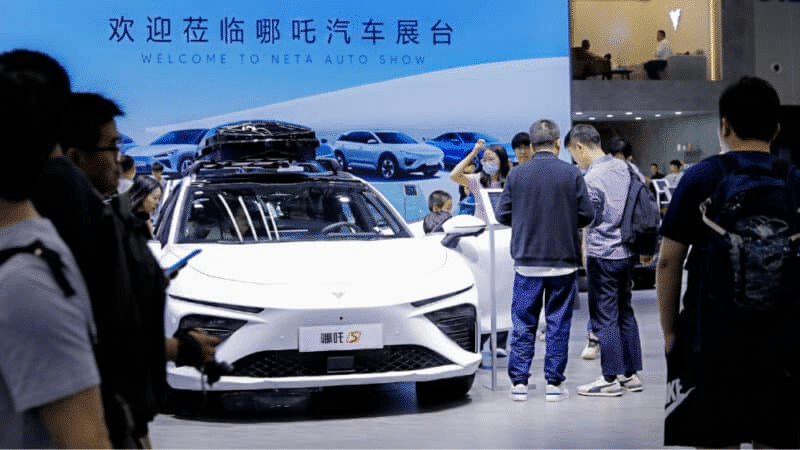According to Chinese media outlet Leiphone, electric vehicle maker Neta Auto is reportedly dismantling its entire research and development team due to escalating financial problems. This move involves N+1 severance packages for employees who sign termination papers this week. Sources indicate approximately 200 staff have already begun leaving, out of a total workforce of around 1,700.

From a sales perspective, Neta has been in trouble this year. According to China EV DataTracker, its January sales decreased by 98% year-on-year, and in February, it sold fewer than 400 cars.

The company has implemented significant salary reductions, with remaining employees facing a 75% cut from their pre-October 2023 levels. Some departing staff are receiving only Shanghai’s minimum wage. Reports also suggest that promised compensation for those who left in November 2023 has not been paid.

Neta Auto’s Shanghai headquarters has become a focal point for protesting suppliers demanding overdue payments. Media reports indicate that suppliers have been gathering at Neta Auto’s Shanghai headquarters to demand payment, with some even sleeping on the floor of the building.

Insiders attribute the crisis partly to the former CEO’s strategy, which heavily favored B2B channels and neglected other areas. Founder Fang Yunzhou, who has now returned as CEO, has outlined reforms focusing on overseas markets and profitable products. However, sources suggest Neta’s debt could be as high as 10 billion yuan (1.4 billion USD), raising concerns about the company’s recovery despite ongoing financing talks with a foreign sovereign wealth fund.

Neta Auto, launched as a mainstream NEV brand by Hozon Auto in 2018, shares its name with the protagonist of this year’s popular Chinese animated film “Nezha 2,” though the company’s fortunes have proven far less favorable than the film’s success.

Last November, there were rumors that Neta Auto was on the verge of bankruptcy. The troubled Chinese car maker Neta reportedly obtained 6 billion yuan (818.8 million USD) in investments, but it seems that this didn’t help enough.


